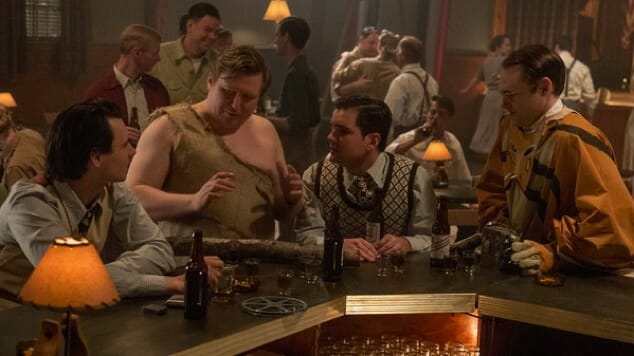Manhattan: “The Threshold”
(Episode 2.03)

If Manhattan could be boiled down to a single word, it probably would be “secrets”—whether it’s as broad or as sweeping as the kind delivered between a government and its governed, or as personal and intimate as the ones between a husband and wife, information (and a lack thereof) acts as the proverbial coal in the show’s driving engine. If Mike Leigh didn’t already have dibs on the title, it’s not out of the question that the series could have been titled Secrets & Lies, and gotten along just fine. Indeed, over the past 16 episodes, the characters at Manhattan’s center have grown to become defined and shackled by the secrets they keep.
“The Threshold” continues this thread while adding even more nuances to an already complex web of intrigue. More than anything, the episode tracks the inherent tragedy of characters trying to break the cycle or find a different path to do the “right thing,” which ultimately does little beside put them on the chopping block.
-

-

-

-

-

-

-

-

-

-

-

-

-

-

-

-

-

-

-

-

-

-

-

-

-

-

-

-

-

-

-

-

-

-

-

-

-

-

-

-








































